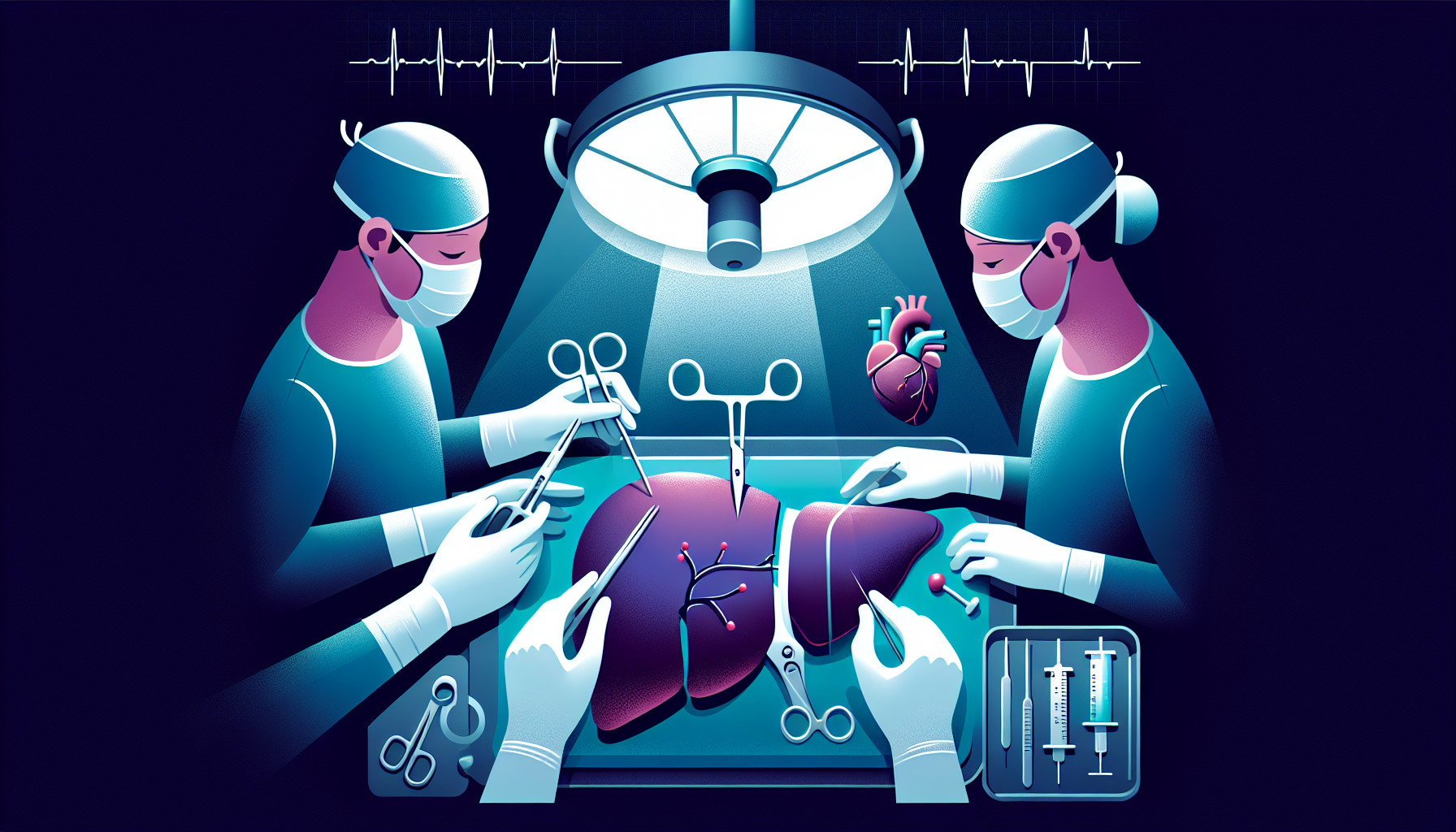Our Summary
This research paper discusses common complications that can occur after a liver transplant. The process of liver transplantation involves connecting various blood vessels and the bile duct from the donor liver to the recipient. One of the main complications that can occur is a blockage in the artery that supplies blood to the liver. This is particularly dangerous if it happens soon after the surgery, as other blood vessels that could potentially supply blood to the liver have not yet developed. This can also lead to complications in the bile duct, which is crucial for the digestion of food.
Another complication that can occur is the development of tumors in the transplanted liver. These can be due to the return of previous cancer, a disorder related to the immune system’s response to the transplant, or the spread of cancer from other parts of the body.
The paper also mentions that there are different methods to identify these complications, with ultrasound being the first choice, particularly soon after the surgery. If necessary, this can be followed by other tests like a CT scan, MRI, angiography, endoscopy, or nuclear medicine studies.
FAQs
- What are some common complications that can occur after a liver transplant?
- How are complications after a liver transplant identified?
- Can tumors develop in a transplanted liver?
Doctor’s Tip
It is important for patients who have undergone a liver transplant to closely follow their doctor’s instructions for post-operative care, including taking prescribed medications, attending follow-up appointments, and making necessary lifestyle changes such as avoiding alcohol and maintaining a healthy diet. Regular monitoring and communication with healthcare providers can help detect and address any complications early on, improving the chances of a successful outcome.
Suitable For
Patients who are typically recommended for a liver transplant include those with end-stage liver disease, liver cancer, acute liver failure, and certain genetic conditions that affect the liver. Patients with cirrhosis, hepatitis B or C, autoimmune liver disease, and alcohol-related liver disease may also be considered for a liver transplant. It is important for patients to undergo a thorough evaluation process to determine their eligibility for a liver transplant, as well as to assess their overall health and ability to tolerate the surgery and recovery process.
Ultimately, the decision to recommend a liver transplant for a patient is based on a variety of factors, including the severity of their liver disease, their overall health and medical history, and the availability of donor organs. Patients who are recommended for a liver transplant must also be willing to comply with post-transplant medications and follow-up care to ensure the success of the transplant.
Timeline
Before the liver transplant, the patient will undergo a series of tests and evaluations to determine if they are a suitable candidate for the surgery. This includes blood tests, imaging scans, and meetings with various members of the transplant team. Once it is determined that a liver transplant is necessary, the patient will be placed on a waiting list for a donor liver.
After the liver transplant surgery, the patient will be closely monitored in the intensive care unit for a period of time to ensure that the new liver is functioning properly and there are no complications. They will then be moved to a regular hospital room for further recovery and monitoring.
In the weeks and months following the liver transplant, the patient will need to take medications to prevent rejection of the new liver and to manage any potential complications. They will also need to attend regular follow-up appointments with their transplant team to monitor their progress and make any necessary adjustments to their treatment plan.
Overall, the timeline for a patient before and after a liver transplant is a complex and challenging journey, but with proper care and management, many patients are able to successfully recover and resume a normal quality of life.
What to Ask Your Doctor
Some questions a patient should ask their doctor about liver transplant complications may include:
- What are the common complications that can occur after a liver transplant?
- What are the signs and symptoms that I should watch out for that may indicate a complication?
- How are complications typically diagnosed and monitored after a liver transplant?
- What are the treatment options available for complications that may arise after a liver transplant?
- Are there any specific lifestyle changes or medications I should take to reduce the risk of complications?
- How often will I need to follow up with my healthcare team after the transplant to monitor for potential complications?
- Are there any support groups or resources available for patients who have experienced complications after a liver transplant?
- How can I best communicate any concerns or symptoms I may be experiencing with my healthcare team?
- Are there any specific factors that may increase my risk of developing complications after a liver transplant?
- What is the long-term outlook for patients who experience complications after a liver transplant?
Reference
Authors: Brookmeyer CE, Bhatt S, Fishman EK, Sheth S. Journal: Radiographics. 2022 May-Jun;42(3):702-721. doi: 10.1148/rg.210108. Epub 2022 Mar 4. PMID: 35245104
